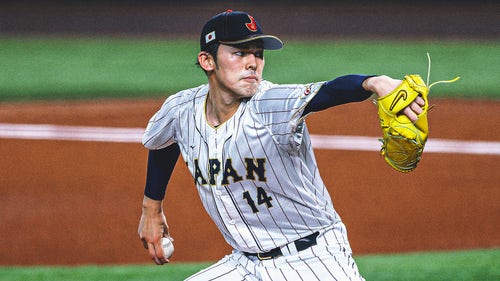
Goodbye Yogi: Remembering Berra's glory years from afar
LONDON (AP) The death of Yogi Berra means little to most in Britain, where baseball is widely seen as a stand-around, action-free imitation of cricket favored by the colonials for reasons that are impossible to comprehend.
Soccer is clearly the focus here, and rugby is briefly in the spotlight with the World Cup being played in England and Wales. There's very little spillover interest in baseball's upcoming World Series, seen as a parochial, misnamed affair.
Londoners look at the Mets' Bartolo Colon, see an overweight, drug-tarnished 42-year-old and wonder how he could still have a spot in America's national game. I look at him and wonder why the Yankees let him go.
They look at Yogi Berra and, if they've heard of him at all, wonder about some of the odd things he's supposed to have said. But I remember the player, the way that big number 8 looked on his back when I was a 6-year-old with my nose pressed (metaphorically, I couldn't get that close) to the screen in back of home plate at Yankee Stadium.
I went to my first game in the Bronx in 1959 and saw Yogi dozens of times, though by then he was often in the outfield, resting his knees, while Elston Howard labored behind the plate.
It was impossible not to like him: slow, ungraceful, unexcitable (except for the time when Jackie Robinson stole home) and deadly in the clutch. His home runs looked unremarkable - they were not tape-measure blasts - but they seemed to win games more often than not.
And he played like we did in Little League - swinging at anything that reached home plate - purportedly drinking Yoo-Hoo, enjoying the tiny hint of bubbles in that oh-so-sweet chocolate concoction.
Johnny Bench had a better arm. Carlton Fisk caught until he was about 100 and never once looked awkward on the field. Mike Piazza had more plate dramatics. But Yogi was unique. You could see D-Day in him, the toughness of that World War II landing transported to the Bronx. And you could identify with him: the short, squat kid who failed to come to terms with his hometown heroes, the St. Louis Cardinals, after he showed up at a tryout.
The Cardinals' lack of vision led Berra to the Yankees, where he was overshadowed first by Joe DiMaggio and then by Mickey Mantle. But the players knew his contributions, and baseball writers made him American League Most Valuable Player three times.
His transition to managing was not smooth, set off by the mystifying Phil Linz harmonica incident (what were the Yankees without their storied dignity?) and I quibbled with the way he handled the Mets starting pitchers in the 1973 World Series, when I thought he brought Tom Seaver back too soon, with costly results.
But he feuded with George Steinbrenner and won - how many people can say that? - and came back to Yankee Stadium in triumph after a prolonged period of self-exile.
By the end, he was the peoples' favorite, one of the last living links to a glorious era.










